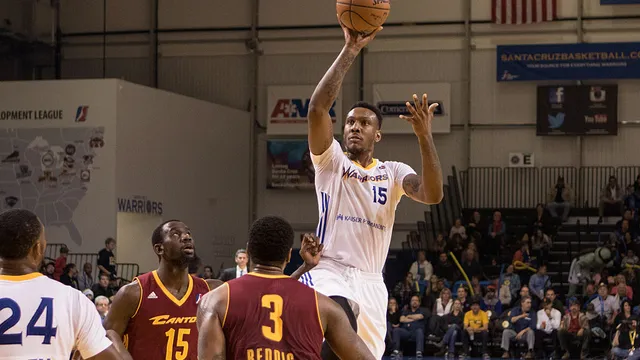
American basketball player arrested for smuggling drugs in Indonesia
2025-05-16 19:12- Jarred Dwayne Shaw was arrested on May 7 for smuggling drugs into Indonesia.
- Police discovered 132 pieces of cannabis candies weighing 869 grams in his possession.
- The Indonesian Basketball League has banned Shaw from playing for life following this incident.
Express your sentiment!
Insights
In Indonesia, a country known for its strict drug laws, an American basketball player named Jarred Dwayne Shaw, age 34, from Dallas, Texas, was taken into custody on May 7. The Soekarno-Hatta Airport police received a tip from customs officials that led to a raid at Shaw's apartment in Tangerang regency, near Jakarta. During the raid, authorities discovered 132 pieces of cannabis candies, amounting to a total gross weight of 869 grams. It was reported that Shaw had received a suspicious package from Thailand, where cannabis was decriminalized in November 2024. Shaw's arrest not only put him in severe legal jeopardy, with potential sentences including life imprisonment or the death penalty under Indonesia's anti-drug laws, but it also raised concerns about the international drug networks targeting the country. Police chief Ronald Sipayung confirmed that investigations to uncover the wider drug distribution network are ongoing. The circumstances of his arrest indicated an alarming trend in which drug syndicates exploit individuals to carry substances into Indonesia, a nation that has made international headlines for its harsh drug penalties. Upon being arrested, Shaw reportedly stated that his intention was to share the cannabis candy with fellow players, indicating a troubling mindset considering the severe laws in Indonesia. A video purportedly showed Shaw resisting arrest, pleading for help while being detained by officers. This incident has drawn attention to the risks associated with drug smuggling, not only from a legal standpoint but also in the context of sports figures setting a poor example. The basketball club Shaw was associated with, the Tangerang Hawks, expressed deep regret over the incident. The club acted promptly by terminating his contract, emphasizing a zero-tolerance policy toward any involvement with drugs. This incident led to Shaw being banned for life from the Indonesian Basketball League, illustrating the sports authority's commitment to maintaining integrity within the game. With drug use being a serious issue globally, the incident serves as a high-profile reminder of the consequences faced by players who stray from professional ethics and legal boundaries, especially in a country with such serious repercussions for drug offenses.
Contexts
Indonesia has strict drug laws and severe penalties for drug-related offenses, reflecting the country's commitment to combating drug trafficking and abuse. As one of the most populous countries in Southeast Asia, Indonesia's drug crisis has intensified over the years, spurring the government to enact stringent regulations. The national narcotics law categorizes drugs into three groups: type I, which are substances like heroin and cocaine that have no medical use and are subject to the harshest penalties; type II, which includes drugs like cannabis that have some medicinal uses but are still illegal for recreational use; and type III, which consists of drugs that are regulated and can be used for medical purposes under strict controls. Violations range from possession to trafficking, with varying consequences based on the type and amount of substance involved. For possession, the penalties can be severe. A small amount of type I drugs can result in a minimum sentence of five years imprisonment, while larger quantities may lead to life sentences or even the death penalty. Trafficking charges carry the heaviest penalties, with individuals caught trafficking significant amounts of drugs facing the death penalty or life imprisonment. The quantity thresholds that define trafficking can vary significantly; for instance, possession of more than 5 grams of heroin, 1 gram of methamphetamine, or 1 kilogram of cannabis can result in these extreme punishments. Furthermore, courts in Indonesia often impose harsh prison sentences to deter drug crimes, supported by public sentiment favoring strict measures against drug usage. The Indonesian government has also made international cooperation a priority in its fight against drug trafficking, working with countries such as Australia, the United States, and others to tackle cross-border drug distribution networks. This has included collaborative efforts in intelligence sharing, law enforcement training, and even joint operations to intercept drug shipments. Despite these efforts, the regulatory landscape remains complex, with ongoing challenges in addressing drug abuse and trafficking. The government's firm stance, exemplified by high-profile executions of convicted traffickers, has drawn both domestic and international criticism, citing human rights concerns regarding the death penalty and the effectiveness of punitive measures in reducing drug-related crime. In response to the drug crisis, Indonesia has also initiated prevention and rehabilitation programs aimed at drug users rather than solely relying on punitive measures. While strict laws are intended to serve as a deterrent, there is an increasing recognition of the need for comprehensive treatment options for drug addiction. Some local NGOs and health organizations promote harm reduction strategies and rehabilitation for users, pushing for a more balanced approach that includes medical support in addition to legal repercussions. This evolving landscape illustrates the complexity of Indonesia's drug laws and penalties, where the interplay of strict enforcement, international collaboration, and emerging health-oriented strategies continues to shape the country's response to drug issues.